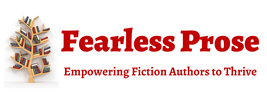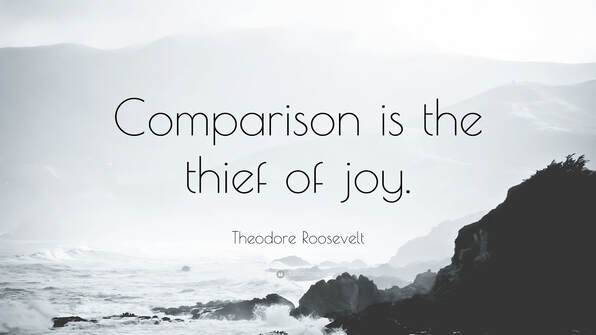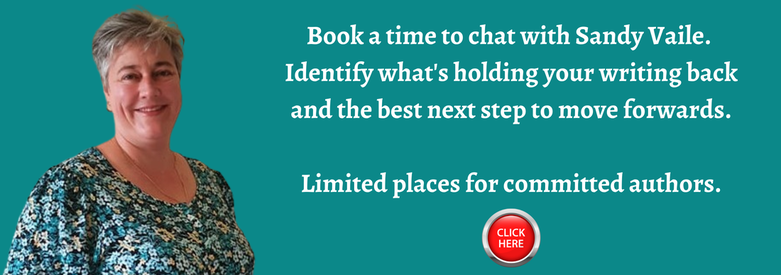|
Author: Sandy Vaile There’s a time and place for creative-comparison and I’m going to show you how to recognise when to stop comparing and when to start taking action. After all, who wants to waste precious time and energy focusing on what we don’t have and can’t do, when we could get busy working on the things we really care about? It’s human nature to compare ourselves to others, but when those comparisons go from positive motivation that enables self-improvement, to self-disapproval that prevents us from reaching our goals, it is not serving our emotional health. This article will explain why we compare ourselves to others, highlight when it becomes toxic, and explore how to harness only the useful elements in a constructive way. Why We Compare Humans have an innate desire to evaluate themselves as a way of determining their place in the world. We do this by comparing our level of success to people we know or aspire to. We do it from the moment we’re self-aware, so we can learn how to flourish in the community we live in. We’ve all done it.
The Benefits of Creative-Comparison Comparing ourselves, our business or our creative works to other people’s can be a useful tool to motivate us. By analysing what someone else is doing to achieve what we want, we can better understand the skills we need to develop or actions we need to take in order to achieve it ourselves. Successful people often share the struggles they faced along their journey to elicit sympathy. It gives us hope that, despite set-backs, we can persist and reach our goals too. When we take practical steps to improve our skills, work towards goals or better our lives, we are using those comparisons constructively. It’s okay to admire what someone else has achieved and analyse how they got there, but once you start comparing what they have now to what you have now, you’re on a slippery slope to feeling worthless and you need to STOP." The Dangers of Self-comparison Self-comparison is destructive when it doesn’t enhance your life. Your life is going to be different to everyone else’s because YOU ARE DIFFERENT. The things that are lacking in your life are different, but you can be certain there are things lacking in other people’s lives too. We know comparison isn’t serving our best interests when:
Remember that our self-worth isn’t based on what we have (or don’t have). It’s about how our behaviour and actions contribute to what where we’re headed. Anything else is a waste of energy."  You Are Unique It’s your own unique past and hopes for the future that make you special and therefore incomparable. No-one else has lived your past, they haven’t had the same experiences or made the same choices, they aren’t living your current life, and they don’t have the same hopes for their future. It’s not fair to demean the journey you’ve taken in life or which for a different past. There is no-one quite like you It doesn’t matter if you write 10,000 words a day or one, if you’re a plotter or a pantser, if writing as a hobby makes you happy or you crave a career. There is never just one way to do something, only the right way for you. Evolve Using Constructive Comparison The most valuable creative-comparison is of where we were a year ago, where we are now and where we want to be next year. That way, you can appreciate how far you’ve come and make a feasible plan to reach the next stage. In order to know where you’re going, you need to figure out three things. 1. What You Want Imagine what writing success looks like to you: the end result. There is no right or wrong answer, only what’s right for you. Is it producing a book every quarter and being on a best-sellers list, or doing whatever it takes to turn fiction writing into a business, or producing one book a year and loving the process? Considering the sacrifices and education it will take to get what someone else has, do you still want it? 2. Why You Want It Now, be brutally honest with yourself here. What is driving you deep down inside to achieve this difficult goal? If you don’t want it bad enough, maybe because you think you should want it, then you’re just going to give up when the going gets tough. All of these things will determine what you’re prepared to do to get what you want, and therefore the journey that best suits you. 3. How You Will Get It Plan for success. Now, you probably want to mull this over for a while, so take your time. What skills will you need to achieve your goal? Which of those do you already have and which will you need to learn? What personal strengths can you draw on to help you achieve your goal? Positive goal setting is a blog for another time, but you do need to break your goal into as many small pieces as you can and tackle one at a time. That way it won’t seem so distant or unattainable. Baby steps! Be Kind To Yourself Finally, remember there will always be circumstances outside of your control. Unexpected events and nasty surprises that are lurking in the shadows, waiting to derail you. Focus on the things you can control, like your reactions, actions and behaviour. I find that connecting with like-minded people, e.g. in online communities or face-to-face groups, is a great way to stay motivated and weather those unexpected storms, but make sure you don’t fall into the trap of negative comparisons. Conclusion I hope this article has reminded you to actively avoid toxic comparisons and given you constructive tips to harness creative comparison and reach for your dreams. Constructive creative comparisons should always lead to self-evaluation and action plans that empower us to move towards our goals. You are your own creative genius, so keep going! What's Next? The publishing industry can be tough and changeable and writing a book is more than just a personal challenge, it’s a journey of self-discovery. Believe me, I understand the challenges you’re facing, because I’ve faced them too. I’d like to share what I’ve learnt so you can stop feeling overwhelmed and enjoy the creative process. Don't miss out on future blogs and writing resources ... Other blogs in the Survive the Publishing Industry series: 1. Practise Resilience (first published at WriterWriter on 04/02/19) 2. Avoid Author Burn-out 3. Reject Creative Comparison 4. [Coming soon] Boost Your Assertiveness 5. [Coming soon] Face Fear Head-on About Sandy Vaile Sandy Vaile is a motorbike-riding daredevil with a dream to empower fiction writers across the globe to enjoy producing commercial-quality fiction and achieve creative fulfilment.
0 Comments
Your comment will be posted after it is approved.
Leave a Reply. |
Fearless ProseEmpowering aspiring authors to confidently write novels they're proud to publish Categories
All
Archives
May 2024
|
© Sandy Vaile 2012-2024 |
Contact and Privacy Policy - About Sandy |




 RSS Feed
RSS Feed